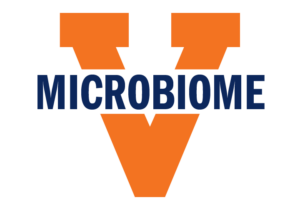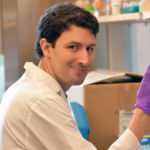TransUniversity Microbiome Initiative (TUMI)
The TransUniversity Microbiome Initiative aims to create a central hub for cutting-edge microbiome research at the University of Virginia.
Human symbiosis with the diverse communities of bacteria and other microbes that compose our microbiome is an essential component of health and a key determinant of interindividual variability in response to therapeutic interventions. Dysbiosis, i.e., imbalance in the composition and function of the microbiome, has been implicated in rising rates of Clostridium difficile infection, metabolic syndrome and obesity, cancer, psychological depression, food allergies, autoimmune diseases, Alzheimer’s disease, and autism. In low- and middle-income countries, dysbiosis is further linked to high rates of diarrheal diseases, undernutrition, and impaired immune responses to oral immunizations against polio and rotavirus – diseases impeding progress towards the United Nations’ 2030 Sustainable Development Goals.
TransUniversity Microbiome Initiative is funded by UVA’s Strategic Investment Fund.
More information can be found here.

What we've accomplished since January 2020
TUMI Sponsored Research Projects
Understanding the role of Lactobacillus in homeostatic and pathological conditions
PI: Alban Gaultier, Ph.D.
Department of Neuroscience
Establishing a model to examine the impact of a methanogen on enteric pathogen infections.
PI: Melissa Kendall, Ph.D
Department of Microbiology
PRIIIsM: Preterm Infant Inflammation and Intestinal Microbiome: Impact on the Brain
PI: Karen Fairchild, M.D.
Department of Pediatrics, Division of Neonatology
A Systems-Biology Approach to Understanding the Role of the Gut Microbiome in Modulating Susceptibility and Pathogenesis of Clostridium difficile Infection
PI: Jason Papin, Ph.D.
Department of Biomedical Engineering
Microbiota- & Metabolome-based Inflammation Biomarkers to Predict Neurocognition
PIs: Kevin Pelphrey, Ph.D. (UVA) and Suchitra Hourigan, M.D. (NIH Clinical Microbiome Unit)
Department of Medicine, Division of Neurology
D-amino acid are chemical signaling molecules released by gut bacteria to modulate human brain physiology
PI: Marcos Pires, Ph.D.
Department of Chemistry
TLR5-mediated differences in the microbiome impair tumor growth and efficacy of PD-L1 blockade for ovarian cancer
PI: Melanie Rutkowski, Ph.D.
Department of Cancer Biology
Metabolomic impacts of TB and TB treatment among children
PI: Tania Thomas, M.D.
Department of Medicine, Division of Infectious Disease
Metabolomic Signatures of COVID-19 Patient Serum
PI: Girija Ramakrishnan, Ph.D. and William A. Petri, M.D., Ph.D.
Department of Medicine, Division of Infectious Disease
The detection of a ketogenic diet-induced metabolic signature in a cohort of relapsing multiple sclerosis patients
PI: J “Nick” Brenton, M.D.
Department of Pediatrics, Division of Neurology
Metabolic and microbial signatures associated with Cryptosporidium infection and diarrhea
PI: Maureen Carey, Ph.D.
Department of Medicine, Division of Infectious Disease
Investigating the role of microbiota-driven intestinal immune responses in oral vaccine failure during undernutrition
PI: Carrie Cowardin, Ph.D.
Department of Pediatrics, Division of Gastroenterology, Hepatology, and Nutrition
Microbial dysbiosis as a driver of neuroinflammation and pathology in Alzheimer’s disease
PI: John Lukens, Ph.D.
Department of Neuroscience
Deep characterization of microbiota structure and function in kidney disease
PI: Julia Scialla, M.D.
Department of Medicine, Division of Nephrology
Metabolite-mediated progression of colorectal cancer by Enterotoxigenic Bacteroides fragilis
PIs: Todd Fox, Ph.D. and Mark Kester, Ph.D.
Department of Pharmacology
Intestinal microbiome of infants with biliary atresia: candidate biomarker and gateway to new therapies
PI: Frank DiPaola, M.D.
Department of Pediatrics, Division of Gastroenterology, Hepatology, and Nutrition
Archaea in human health and disease
PI: Melissa Kendall, Ph.D.
Department of Microbiology
Functional Analysis of an Enteric Neuron-on- a-Chip in the Presence of Intestinal Microbial Metabolites
PI: Daniel Levin, M.D.
Department of Medicine, Pediatric Surgery
Aggregative adherence fimbriae of enteroaggregative Escherichia coli in adherence, interactions with mucin, and alterations in pH
PI: James Nataro, M.D., PhD, MBA; Laura Gonyar, PhD
Department of Pediatrics, Division of Infectious Disease
The Microbiome of Long-Term Central Venous Catheters
PI: Andrew Barros, M.D.
Dept of Medicine, Critical Care
Non-Invasive 4D Imaging of Living Host-Microbiome Interfaces
PI: Andreas Gahlmann, Ph.D.
Department of Chemistry
Microbial composition of semen affects the expression of PtdSer on sperm and affects fertility
PI: Ryan Smith MD; Jeffrey Lysiak PhD; Dylan Hutchison, M.D.
Dept of Medicine, Urology
Aged vs young microbiota, bile acid metabolism, host immune response, C. diff
PI: Jae Shin, Ph.D.
Department of Medicine, Division of Infectious Disease
Lysinibacillus sphaericus as a promising tool for critical mineral extraction
PI: Bryan Berger and Toriana Vigil
Chemical Engineering
PKCα regulation of the intestinal microbiome during cryptosporidiosis
PI: Chelsea Marie and Ning-Jiun Jan
Medicine, Division of Infectious Disease
Metabolic functionality of defined microbial consortia that resolve C. difficile disease
PI: Jason Papin, Glynis Kolling, and Deborah Powers
Biomedical Engineering
Role of Gut Luminal S110B on Changes of Fecal Metabolits during C. difficile Infection and Implations on Gatrsointestinal Complications Post Infection
PI: Cirle Warren and Deiziane Costa
Department of Medicine, Division of Infectious Disease
Lupus progression and changes to bacterial gene functions and metabolic pathways as a regulator of intestinal immune and epithelial processes
PI: Daniel Zegarra-Ruiz and Maricielo Vaella
Department of Microbiology
TUMI Resources and Associated Services
TUMI Leadership Team
Dr. William A Petri
Dr. Carrie Cowardin
Dr. Brett Moreau 
Dr. Casandra Hoffman 
Get in touch!
Please reach out to Casandra Hoffman (CLH4HE@virginia.edu) with any questions related to engaging with the Microbiome Initiative or associated services.
We have a microbiome listserv! Please signup using the link below to receive information about events, funding, and training opportunities!












